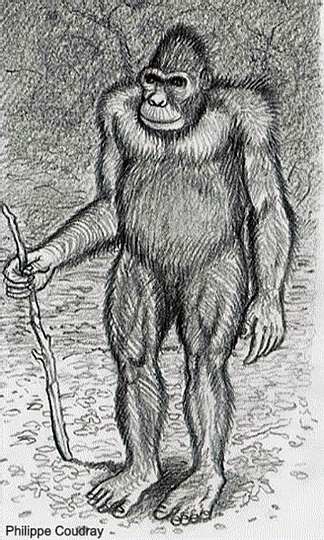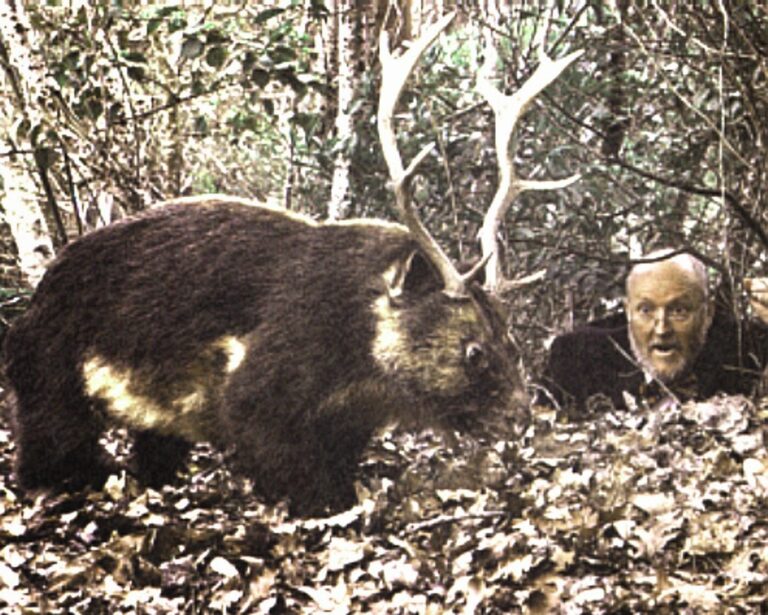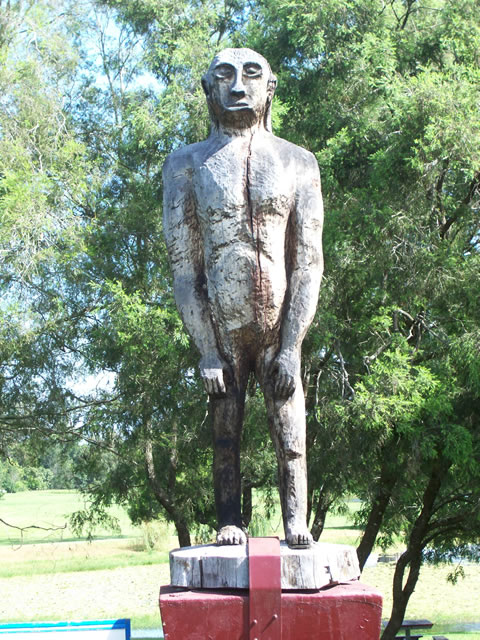
Illustration by Philippe Coudray
The Junjudee is Australia’s “little hairy man” opposed to our “big hairy man” the Yowie. It is also called the Njimbin, Junjari, Junjurrie plus other names depending on the region or indigenous language of the Australian Aborigines, of which there are many dialects. They are sometimes known as “brown jacks” by European Australians. Most researchers agree that Junjudee are not young or juvenile Yowies.
The Jundudee is described as being 3-4 feet tall, covered in thick hair three to four inches in length of varying colour. Short with a thick and stocky frame with an ape like face.
In Gary Opit’s book “Australian Cryptozoology” he states: “Aboriginal people have many stories of the little hairy man; how they will on occasion interact with people, brazenly tapping one on the shoulder or grasp one’s hand or even wrestling with you before running away.”
Junjudee’s have been seen by drivers on sides of roads, entering campsites, homes, and wrestling people in their beds. They appear to be attracted by music, dancing and children. They also seem to be curious of humans and interact with them more than their bigger cousins the Yowie, who tend to flee on encountering a person. One could suggest that their behaviour is playful and non-threatening.
In some accounts of the Junjudee, witnesses describe a primitive language that they use, often described as “Aboriginal sounding”. Others describe barking or “ruff, ruff” type of vocalisations.
Some indigenous tribes regard the Junjudee as a meat eater and the Yowie or Dooligahl as a plant eater.
Yowie researchers have made comparisons of the Junjudee with the “Hobbit” or Homo floresiensis; the remains of which were discovered at Liang Bua on the island of Flores, Indonesia in 2003. The appearance of the “Hobbit” or “Flores man” is like the appearance and height described by witnesses who have seen the Junjudee, perhaps suggesting this Flores man is indeed the “little hairy man” which covertly roams the Australian wilderness. However, this theory has little evidence and is speculative at this time.
Other indigenous belief about the Junjudee is that it is not a flesh and blood creature at all, but a spiritual being not unlike a nature spirit which appears in western folklore.



